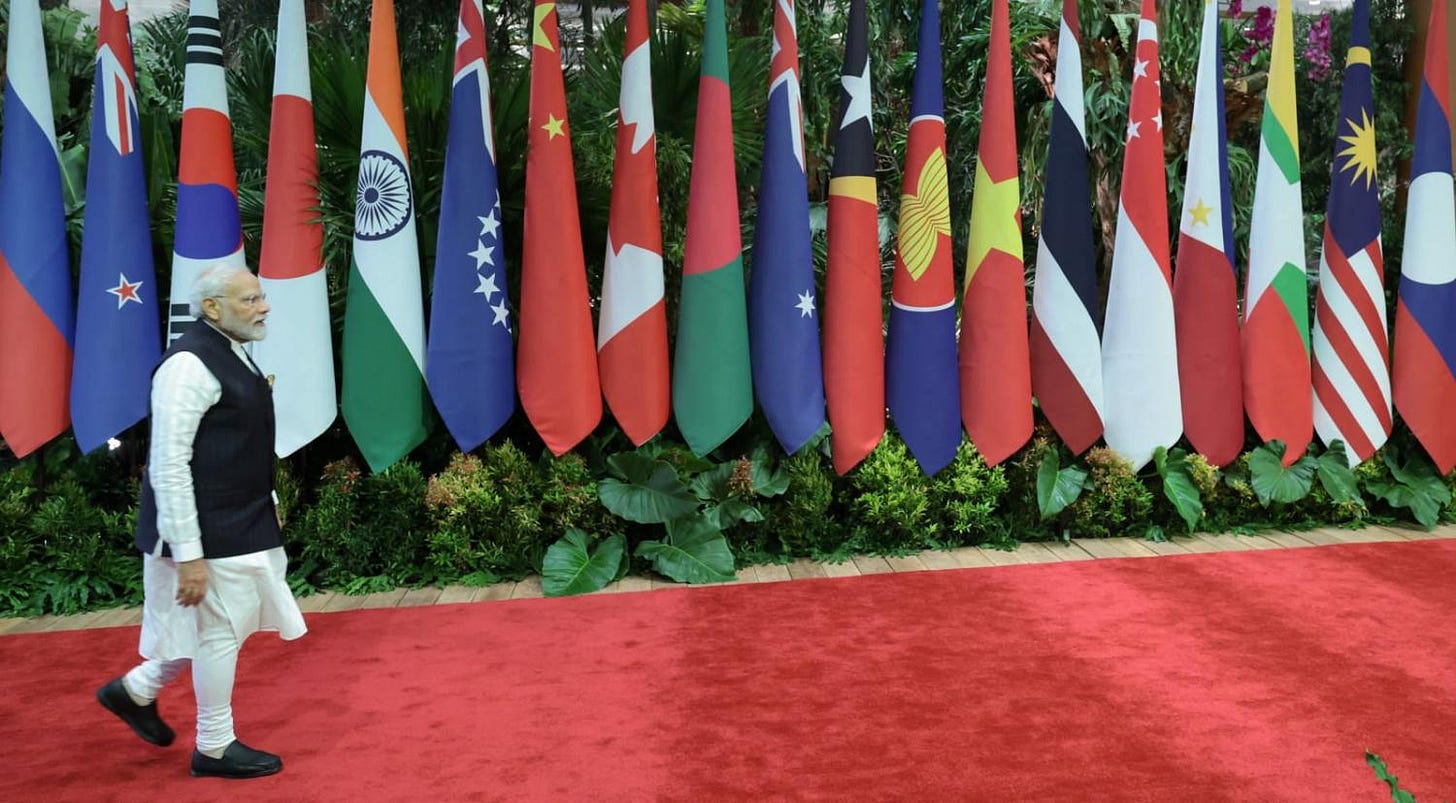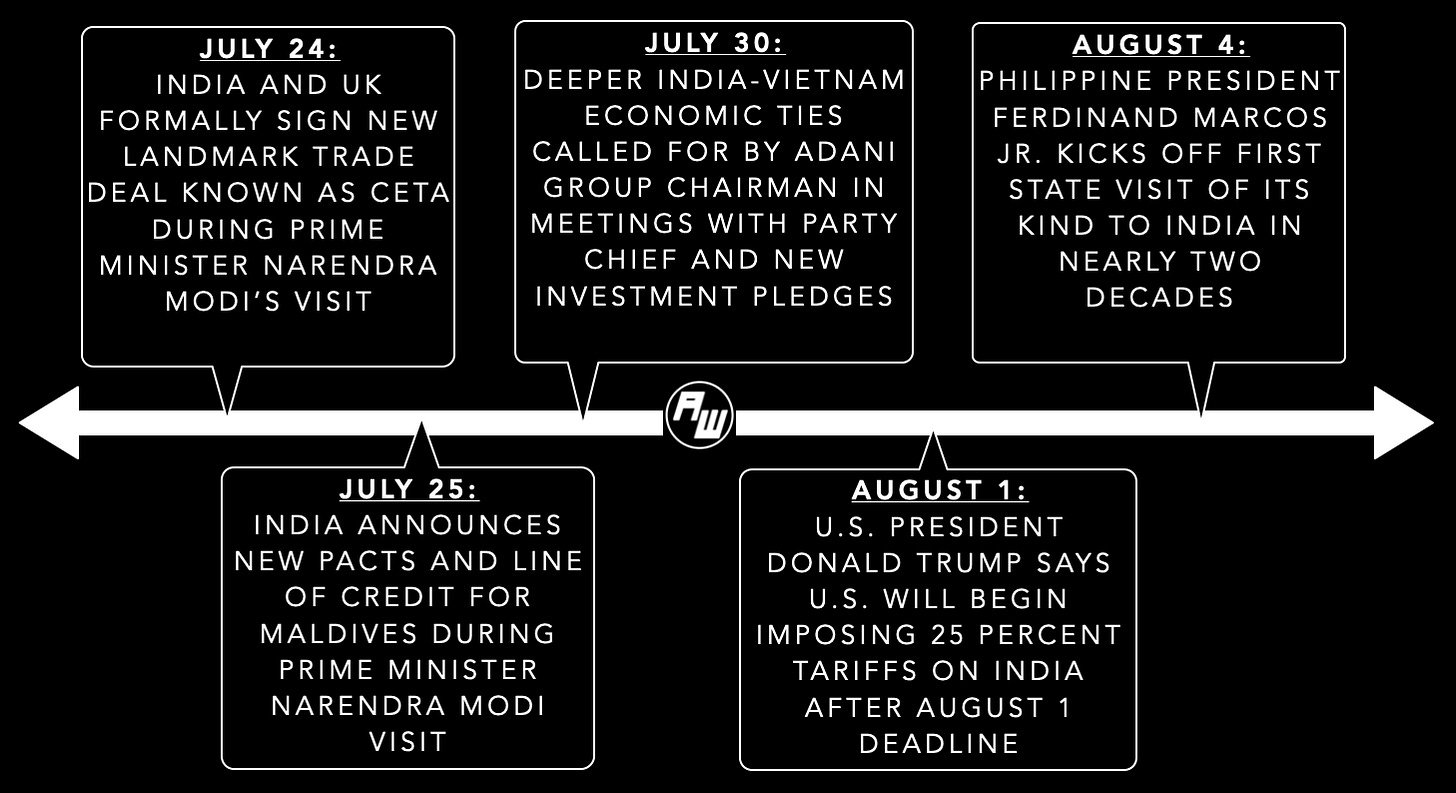Review: Unfinished Quest in India Indo-Pacific Power Status?
New book raises future questions about India's Indo-Pacific and global engagement under Narendra Modi, with implications for Southeast Asia and wider world.
A new book raises future questions about India's Indo-Pacific and global engagement and great power status under Prime Minister Narendra Modi and beyond, with implications for Southeast Asia as well as the wider region and world.
WonkCount: 1,458 words (~6 minutes)
Review: Unfinished Quest in India Indo-Pacific Great Power Status?
Context
“The last state visit to India by a Philippine president was undertaken by then President Gloria Macapagal-Arroyo in October 2007,” the Philippine government broadcasted in framing the importance of President Ferdinand Marcos Jr.’s five-day state visit to India which kicks off later this week — the first by a Philippine president in nearly two decades and coming just after Marcos’ high-stakes summit meeting in Washington, D.C.1 While the South China Sea has unsurprisingly dominated some previews of the trip as it has in the past, it will also be a datapoint in how India is engaging a key country in Southeast Asia within its wider major power ambitions, beyond the rhetoric around the 75th anniversary of the establishment of bilateral diplomatic ties commemorated this year.
Select Recent Indo-Pacific Developments Involving India and Partners in Southeast Asia and Beyond
A new book The Unfinished Quest by scholar T.V. Paul sheds light on the future trajectory of India’s quest for major power status and the implications for Southeast Asia, the Indo-Pacific and the wider world2. In doing so, it adds to a list of recent books on aspects of India’s worldview, including ones reviewed recently on ASEAN Wonk on India’s foreign policy approach and its challenges in the Indian Ocean. As the book notes, while contemporary accounts may frame New Delhi’s rise amid current developments such as China’s assertiveness or Global South discontent, India’s quest for great power quest arguably dates all the way back to the country’s independence in 1947, with its first premier Jawaharlal Nehru once quoting a French Indologist to assert that New Delhi “has the right to reclaim in universal history the rank that ignorance has refused her for a long time and to hold her place among the great nations.”3 At the same time, looking ahead, The Unfinished Quest cautions that success in India’s major power quest is far from assured or devoid of significant structural challenges, even as its relative gains have being closely watched in other Indo-Pacific capitals including some in Southeast Asia. “[R]elative status decline or stagnation due to negligence and complacency by the elite can happen,” the book warns before setting out a set of potential futures in the years ahead4.
Analysis
The Unfinished Quest forecasts future areas to watch in India’s major power status quest in the coming years and their wider regional and global implications (see originally-generated ASEAN Wonk table below for a summary of these critical areas, along with major datapoints and domains. Paying subscribers can also read the rest of the “Analysis” section and “Implications” section looking at how these dynamics play out in the future).





